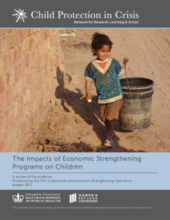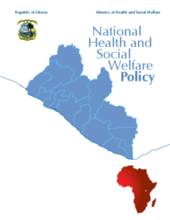Displaying 191 - 200 of 241
The National Family Preservation Network (NFPN) recently released its family assessment tool designed for use in Least Developed Countries (LDC). The tool aims to help a variety of workers serving families in least developed countries by providing methods and approaches to enhance family strengthening.
This paper presents new estimates of the average lifetime cost per child maltreatment (CM) victim in the United States and aggregate lifetime costs for all new cases of CM incurred in 2008 using an incidence-based approach. The authors find that the lifetime economic burden of CM is approximately $124 billion. Given this substantial economic burden, the authors argue that the benefits of prevention will likely outweigh the costs for effective programs.
This report provides data on children living in urban settings, including statistics, conditions, and personal testimonies. The report also includes UNICEF’s recommendations for policy regarding children in urban settings, working with this population, and for future action. Sections that are relevant to children’s care include: children living and working on the streets, migrant children, urban emergencies, and many more.
This study explores global growth suppression among children within institutional care settings.
This document analyses the review of 43 impact studies sought to methodically capture the known impacts of economic strengthening programs on the well-being of children (0-18 years) in crisis contexts in low-income countries.
This paper explores malnutrition among children in foster care in the U.S. and programs and interventions that help to improve the nutritional health of children in foster care.
To achieve Liberia’s vision of becoming a middleincome country, the goal of this policy is therefore to improve the health and social welfare status of the population of Liberia on an equitable basis.
This paper examines the relationship between migration and child growth in the rural highlands of Guatemala, a region with substantial international migration outflows, significant remittance inflows, and some of the highest rates of child undernutrition in the world.
This document is the National Health Strategic Plan 2011 to 2015 (NHSP 2011-15) for Zambia.
The first ever World report on disability, produced jointly by WHO and the World Bank, suggests that more than a billion people in the world today experience disability. This report provides the best available evidence about what works to overcome barriers to health care, rehabilitation, education, employment, and support services, and to create the environments which will enable people with disabilities to flourish. The report ends with a concrete set of recommended actions for governments and their partners.




